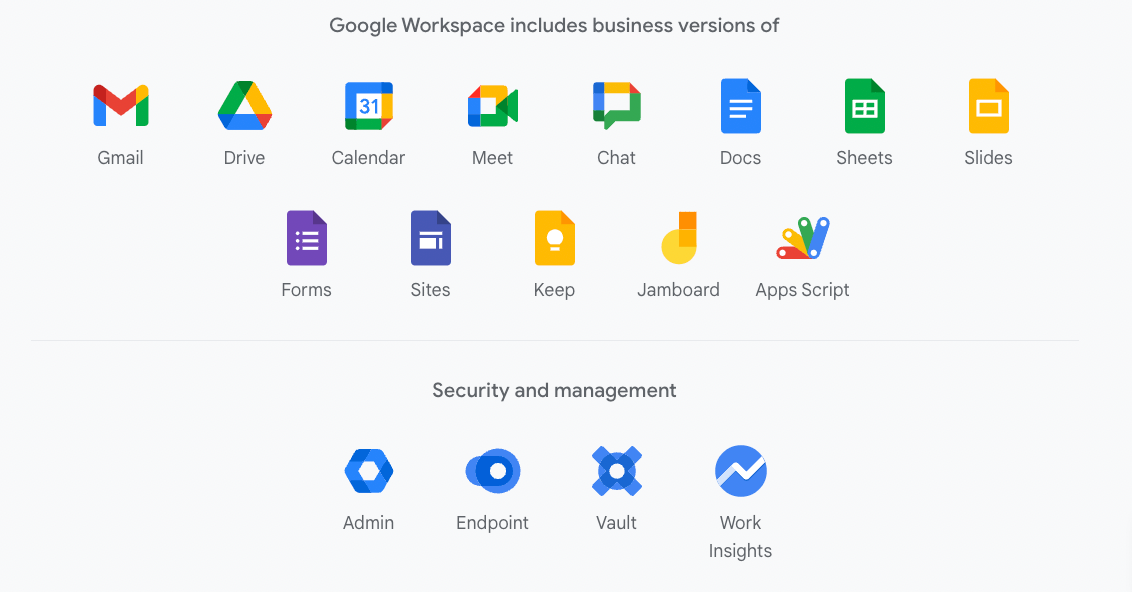Google Bard, the search giant’s AI chatbot that has so far existed mainly in the shadow of OpenAI’s ChatGPT, now has a new name: Gemini, and a more powerful mode, “Advanced,” as well as a new dedicated Android app and subscription option.
Alphabet CEO Sundar Pichai announced today that Bard will now simply be known as Gemini, with the bard.google.com URL redirecting to gemini.google.com and no mention of the word Bard anymore.
In addition, Google is launching a new Gemini app for Android smartphones and mobile devices, while Apple iOS users can find it in the existing Google app. Targeting enterprise customers directly, Pichai said that “Gemini models are also coming to products that people and businesses use every day, including Workspace and Google Cloud.”
Workspace is the backbone of many enterprises including VentureBeat, providing services such as Gmail, Google Drive/Docs/Sheets, Google Calendar, and more to corporate customers and organizations. This could be a big win for Google’s AI uptake, since OpenAI and other AI rivals don’t offer similar existing workplace cloud apps.
VB Event
The AI Impact Tour – NYC
We’ll be in New York on February 29 in partnership with Microsoft to discuss how to balance risks and rewards of AI applications. Request an invite to the exclusive event below.

Last week, Google expanded its AI assistant to over 40 languages and more than 230 countries and territories.
Gemini Advanced is here to challenge GPT-4 for the top LLM
Most importantly, arguably, is the fact that Google is finally allowing customers to use its most powerful version of Gemini, previously called “Ultra” and now rebranded to “Advanced” — though to use it, they will need to subscribe to Google’s new Google One AI Premium Plan ($19.99/month), mirroring rival OpenAI’s $20/month subscription price for ChatGPT Plus.
When it was first announced late last year, Google provided internal benchmarking results showing Gemini Advanced was more powerful and performant than OpenAI’s GPT-4, still the most powerful consumer-grade, public-facing large language model (LLM) in the world to date.
Now that Gemini Advanced is out, however, independent researchers and users will be able to put it to the test and see if it is indeed more powerful than rival models. If so, or if it even matches GPT-4 and other leading open source models in performance on common tasks, it will be a big boost to Google’s AI aspirations and visions, as the company’s lower powered Gemini models, Nano and Pro, were measured by third-party researchers as performing worse than GPT-3.5 Turbo, an older version of OpenAI’s LLM.
In his blog post today, Pichai stated that Gemini Advanced is “the the first to outperform human experts on MMLU (massive multitask language understanding), which uses a combination of 57 subjects — including math, physics, history, law, medicine and ethics — to test knowledge and problem-solving abilities.”
In another blog post, Sissie Hsiao, Vice President and General Manager for Google Assistant and Bard, notes that the revamped chatbot will now come with a toggle to switch to “Gemini Advanced,” which is “far more capable at highly complex tasks like coding, logical reasoning, following nuanced instructions and collaborating on creative projects. Gemini Advanced not only allows you to have longer, more detailed conversations; it also better understands the context from your previous prompts.”
It is also worth noting that Google, like always, is moving with a phased rollout of Gemini Advanced. Currently, it is available in more than 150 countries and territories but only in English, which will limit its usage.
A new mobile experience for Android and iOS and a ‘first step in building a true AI assistant’

In addition to Gemini Advanced, Google is also pushing its chatbot experience to mobile devices by rolling it out on Android and iOS phones in the U.S. in English.
“We’ve heard that you want an easier way to access Gemini on your phone. So today we’re starting to roll out a new mobile experience for Gemini and Gemini Advanced with a new app on Android and in the Google app on iOS,” wrote Hsiao.
With Gemini on your phone, you can type, talk or add an image for all kinds of help while you’re on the go: You can take a picture of your flat tire and ask for instructions, generate a custom image for your dinner party invitation or ask for help writing a difficult text message. It’s an important first step in building a true AI assistant — one that is conversational, multimodal and helpful.“
For Android, the company is giving users two options: a dedicated Gemini app, which users can download, or simple activation through Google Assistant.
Not surprisingly given Google birthed Android, the experience here seems more fully featured. As Hsiao explained in her post:
“If you download the Gemini app or opt in through Google Assistant, you’ll be able to access it from the app or anywhere else you normally activate Google Assistant — hitting the power button or corner swiping on select phones, or saying “Hey Google.”
This will enable a new overlay experience that offers easy access to Gemini as well as contextual help right on your screen — so you can, for instance, generate a caption for a picture you’ve just taken or ask questions about an article you’re reading.
Many Google Assistant voice features will be available through the Gemini app — including setting timers, making calls and controlling your smart home devices — and we’re working to support more in the future.“
Meanwhile, for iOS, the revamped chatbot is being enabled in the Google app.
The rollout of the mobile experience is also expected to expand over the coming weeks, hitting more regions and languages, including Japanese and Korean. Notably, Google’s rivals OpenAI and Inflection AI already offer their respective AI chatbots via mobile apps.
VentureBeat’s mission is to be a digital town square for technical decision-makers to gain knowledge about transformative enterprise technology and transact. Discover our Briefings.

